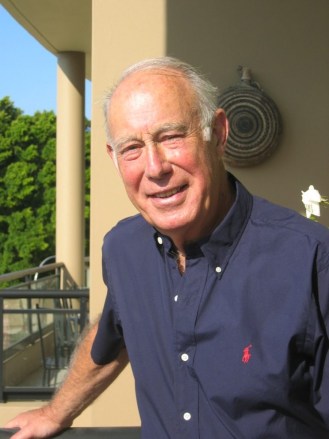
One rule for the big boys, another for the little fellas…
Spare a thought for one-time Veritage Press proprietor, John Youngman, whose firm went into voluntary liquidation a few years ago, at which time he agreed to pay out the lease on his company owned BMW.
The Bavarian boys wanted 62 big ones, to which he agreed despite the 523i’s then valuation being half of that. What did BMW’s heavies then do? Sold it at auction for a mere 27 grand. Youngman went to arbitration to resolve an obviously invidious situation and won. BMW appealed in the local court where Youngman was again successful. They went on appealing till a phalanx of high priced silks and their retinue of by-the-quarter-hour-charging solicitors had racked up over $200,000 in fees.
They won’t listen to Mr Youngman’s appeals to settle the case and so far, the whole shameful exercise has taken a large chunk out of his superannuation. It borders on the unbelievable.
Halt! who goes there?
Passwords become exponentially harder to crack with each character added, so longer passwords are much better than shorter ones, the experts say. People in the security trade contend that a brute-force attack can easily defeat a password with seven or fewer characters, hence a mandatory minimum should be eight characters.
Even then, the gurus say one needs to make those eight characters count: a randomly generated eight-character password using letters, numbers and symbols (for example, h7%R9#jA) is vastly more secure than an ordinary eight-letter word such as licences.
Best protection stems from a random password of at least 11 characters or a non-random password of at least 17 characters.
I make no charge for this vitally important counselling.
Packaging industry’s environmental credentials
Last month’s 2009 Evolution Awards demonstrated some remarkable environmental responsibility signposts within the packaging industry in this country.
Examples include KFC, which by 2011 plans to recycle 370 tonnes of waste per store; Campbell Arnott’s improvement in cardboard reduction, pallet utilisation and transport efficiency; O-1 Australia’s 20 per cent energy reduction, savings of 11,000 tonnes of CO² and 5,000kL of water per annum, and among many others, Fred Hosking, where the cubic area of waste sent to landfill is minimised by a one tonne concrete block attached to a fork truck which is dropped to compress rubbish destined for landfill.
I feel sure there are isolated cases within the printing industry where similar examples of ecosystem initiatives can be found, but in the bigger picture, perhaps the industry could perhaps learn something by attending next year’s Evolution Finalists Award night.
GEC be damned
Gainsaying the global economic crisis, As New Printing Machinery’s new office on the Gold Coast (ProPrint August 2009) is a direct outcome of increasing sales. Managing director Margaret Lucas has reported strong growth for the company over the past few months despite the downturn challenges. She maintains that while the banking crisis has shaken up the used equipment market, many printers around the globe are taking advantage of price reductions to build their business.
Seems that used late model machinery is available at unmatched prices and printers around the traps have woken up to discover that a two or three year old press or folder can be just as productive as a new one.
Canon puts its money where its cartridges are
An important, if somewhat remote, example of confidence in the industry comes by way of Canon USA’s opening of its Newport News production facility, a 700,000 square foot facility for the manufacture of laser printer cartridges that will incorporate Canon’s proprietary high-speed, automated technology for cartridge production. The Company has also signalled plans to establish a research centre for development of automated and robotic manufacturing technologies. Who says the future is bleak?
One thing leads to another, or should…
The recent announcement by SBS Television that it is again offering an indigenous cadetship programme which trains a candidate in all facets of TV production caused some cogs to turn in my cranium. If the TV people can do it, surely the printing industry can do it (or does it already do it and nobody knows about it?).
Surely as an industry with a sense of responsibility to the society to which it caters, printing could show the flag. How about it Messrs Geon, Blue Star or even, dare I suggest, the PIAA?
The new (safe) pal to online traders
With the volume of online transactions spilling over into the printing industry (more and more enlightened printers are breaking the mould and adopting this 21st century form of trading) the recent announcement by PayPal of a new developer API called the Adaptive Payment Platform will need some close examination.
In addition to allowing for payments and monetary transactions of almost any size outside of the web, the new platform promises near unlimited flexibility in how payments are handled. Some 300 developer partners have been working with the API on a beta basis including Microsoft, LiveOps and MedPayOline.
Comment below to have your say on this story.
If you have a news story or tip-off, get in touch at editorial@sprinter.com.au.
Sign up to the Sprinter newsletter



